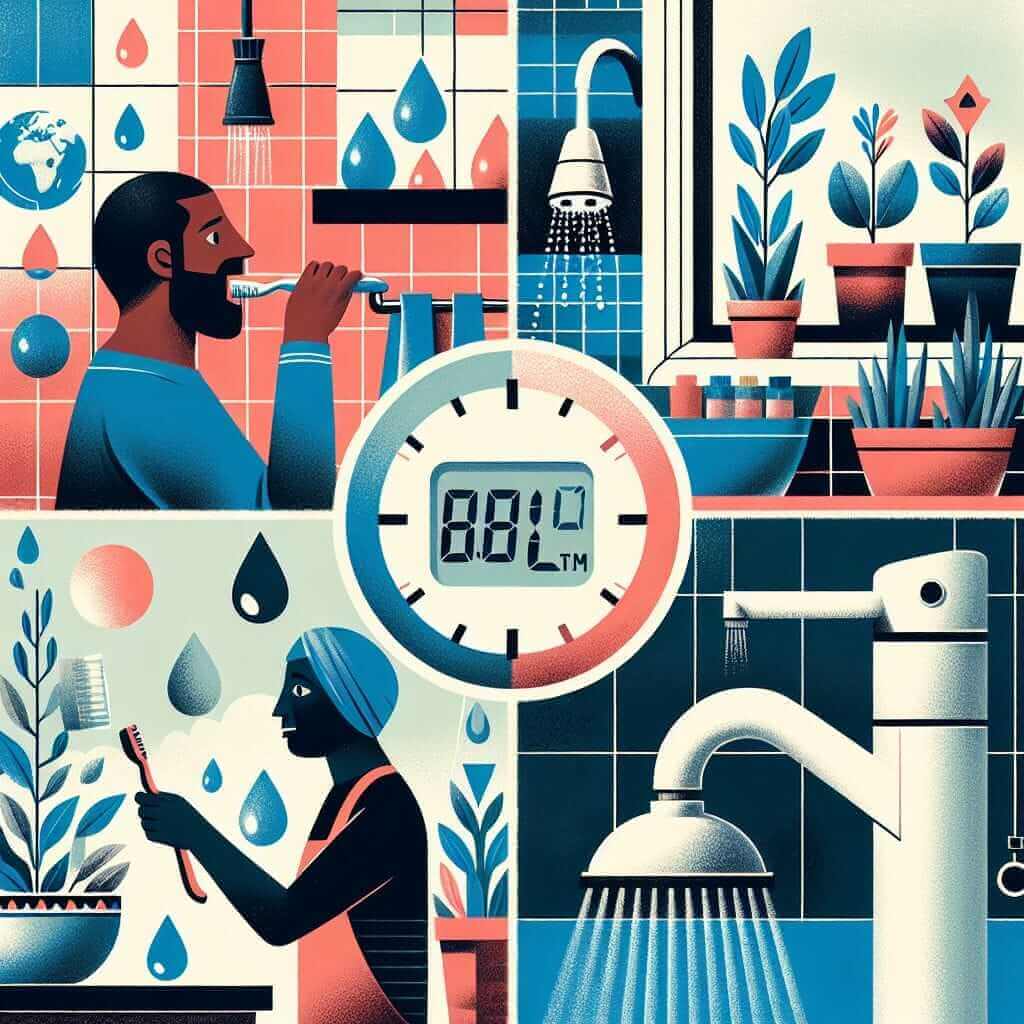As an IELTS instructor with over two decades of experience, I’ve seen countless students grapple with the seemingly simple question, “What are some ways to conserve water?”. While it appears straightforward, many struggle to provide detailed and nuanced responses that truly impress the examiner. This article aims to equip you with the knowledge and strategies to answer this question confidently and effectively, potentially boosting your IELTS speaking score.
Understanding the Question’s Significance
Before delving into specific strategies, it’s crucial to understand why this question frequently arises in the IELTS speaking test. Examiners aren’t just testing your vocabulary related to environmental issues; they’re evaluating your ability to:
- Think critically about global challenges: Water conservation is a pressing global concern, and your response demonstrates your awareness of this issue.
- Articulate practical solutions: Examiners assess your ability to think beyond general statements and provide concrete examples of water-saving actions.
- Organize your thoughts coherently: A well-structured response showcases your fluency and coherence in English.
Crafting Your Response
Here’s a step-by-step approach to formulate a comprehensive and impressive answer:
1. Start with a Strong Opening Statement:
Avoid generic beginnings like “There are many ways to conserve water…”. Instead, opt for a more engaging start:
Example: “Water scarcity is becoming increasingly problematic worldwide, making water conservation more crucial than ever. Fortunately, there are many practical steps we can take in our daily lives to make a difference.”
2. Categorize Your Examples:
Organize your examples into categories for better clarity and structure. This demonstrates logical thinking. Here’s a possible framework:
- Household Conservation: “At home, we can significantly reduce water wastage by taking shorter showers instead of baths, and by fixing any leaky faucets promptly.”
- Garden and Outdoor Use: “In the garden, using a watering can instead of a hose for plants can save a surprising amount of water. Additionally, choosing drought-resistant plants for our gardens can reduce the need for frequent watering.”
- Responsible Consumption Habits: “Beyond our individual actions, being mindful of our water footprint in general is essential. This can involve supporting businesses committed to water conservation and reducing our consumption of water-intensive products.”
3. Provide Specific Details and Explanations:
Don’t just list examples. Elaborate on how each action conserves water, demonstrating a deeper understanding.
Example: “Instead of letting the faucet run while brushing our teeth, we should turn it off and only turn it back on when needed. This simple habit can save gallons of water each day.”
4. Utilize Transition Words and Phrases:
Ensure a smooth and coherent flow to your response by using transition words and phrases.
Example:
- “Firstly, we can…”
- “Another important step is to…”
- “Furthermore, we should consider…”
5. Conclude Concisely:
Summarize your main points briefly and end on a positive note.
Example: “In conclusion, by implementing these simple yet effective water-saving habits at home, in our gardens, and through our consumption choices, we can collectively contribute to a more sustainable water future.”
Example Response using the strategies:
“Water scarcity is becoming increasingly problematic worldwide, making water conservation more crucial than ever. Fortunately, there are many practical steps we can take in our daily lives to make a difference. Firstly, at home, we can significantly reduce water wastage by taking shorter showers instead of baths, and by fixing any leaky faucets promptly. Another important step is to be more efficient with our water use in the garden. Using a watering can instead of a hose for plants can save a surprising amount of water. Furthermore, choosing drought-resistant plants for our gardens can reduce the need for frequent watering. Lastly, beyond our individual actions, being mindful of our water footprint in general is essential. This can involve supporting businesses committed to water conservation and reducing our consumption of water-intensive products. In conclusion, by implementing these simple yet effective water-saving habits at home, in our gardens, and through our consumption choices, we can collectively contribute to a more sustainable water future.”

Additional Tips for Success:
- Practice Regularly: Familiarize yourself with common IELTS topics like environmental issues to quickly formulate ideas.
- Record Yourself: Listening to yourself speak can help identify areas needing improvement, such as pronunciation or fluency.
- Expand your Vocabulary: Learn synonyms for frequently used words related to the environment and conservation to enhance your lexical resource score.
Remember, the key to excelling in the IELTS speaking test is to demonstrate a strong command of English and your ability to communicate ideas effectively. By following these strategies and practicing diligently, you’ll be well-prepared to confidently answer any question about water conservation.